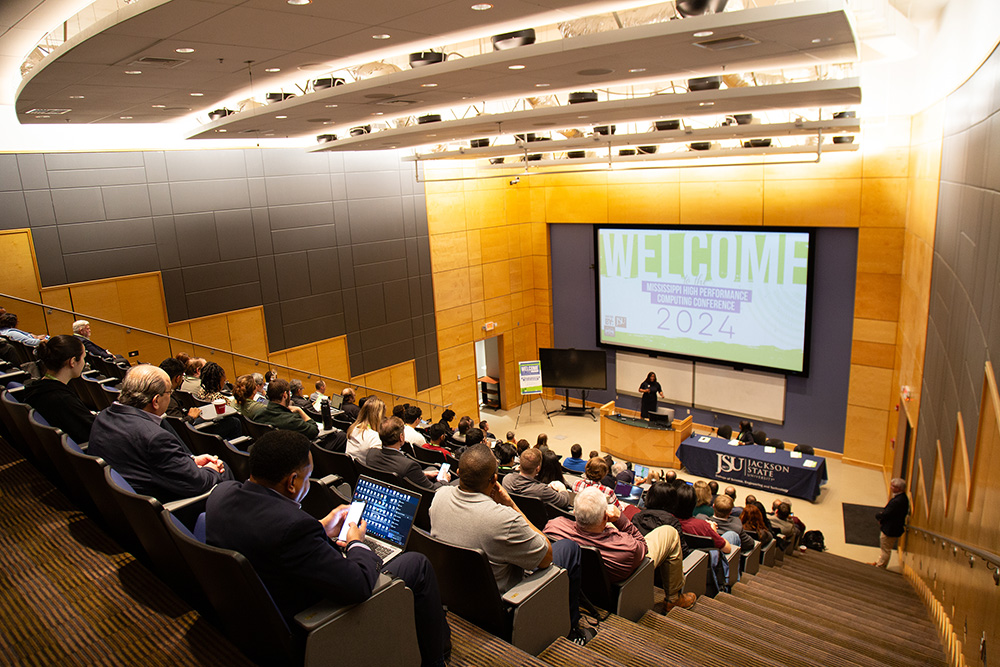Statewide Point of Pride: Inaugural conference highlights Mississippi excellence in high performance computing

Contact: James Carskadon
JACKSON, Miss.—Mississippi is known for southern hospitality, agriculture, and a rich history in music and sports. Mississippi is also making a mark as a national leader in the field of high performance computing.
Mississippi State University and Jackson State University co-hosted the inaugural Mississippi High Performance Computing Conference March 26-27 in Jackson, for the first time bringing together Mississippi’s vast HPC community. Mississippi boasts at least 18 high performance computing clusters among government and university systems, including seven systems ranked among the top 500 most powerful in the world.
Christine Cuicchi, director of the Navy Department of Defense Supercomputing Resource Center located at Stennis Space Center on the Mississippi Gulf Coast, noted in her keynote speech that those 18 systems combine for 95 petaflops of computing power. A single petaflop of computing power can run one quadrillion calculations per second.
“Mississippians are making a broad impact to our state and world in this field,” said Cuicchi, a two-time MSU graduate.
A major focus of the conference was developing a workforce that can manage the high-powered computing systems in Mississippi, many of which drive key research in support of national defense. Leslie Leonard, associate director for workforce development for the Department of Defense High Performance Computing Modernization Program, HPCMP, encouraged the students and professionals in attendance to embrace different paths into computing and think beyond linear pipelines. She shared several outreach programs the HPCMP and the Vicksburg-based U.S. Army Engineer Research and Development Center use to encourage the next generation of the workforce.
“Early exposure to computational science and the lab environment can attract talent into permanent roles,” said Leonard, a two-time JSU graduate.
JSU Provost and Senior Vice President for Academic Affairs Alisa L. Mosley noted that the university is using HPC to advance research and grow new partnerships.
“We are setting up infrastructure to ensure our faculty and students are successful and looking at ways to use HPC to elevate students across all of our disciplines,” Mosley said.
MSU Associate Vice President for Corporate Engagement and Economic Development Jim Martin highlighted MSU’s strengths in high performance computing, including two systems ranked in the top 500 globally, but noted that a connected HPC community across the state improves capabilities at every supercomputing site and university.
“Every person in this room should be proud of what is happening in high performance computing in Mississippi,” Martin said.
The conference included sessions on HPC curriculum, workforce development, artificial intelligence and other topics, and a workshop for students to share their experiences in HPC clubs and organizations. The event was co-chaired by JSU Chief Information Officer Deborah Dent and MSU High Performance Computing Director Mike Navicky.